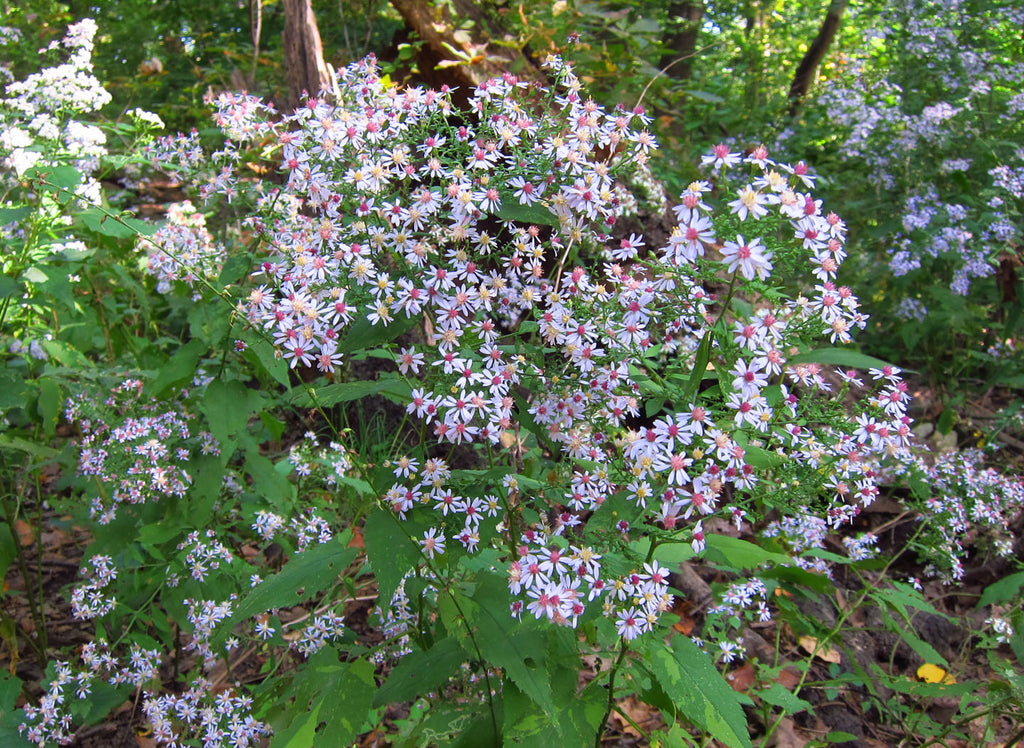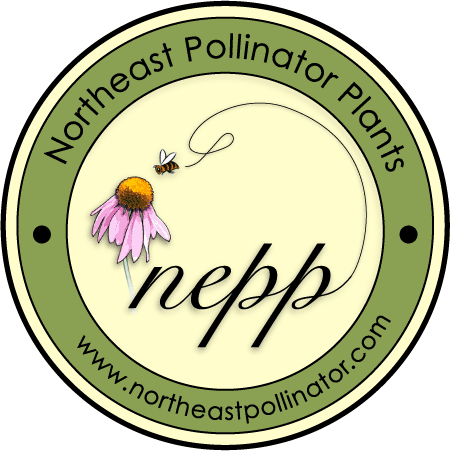
Northeast Pollinator Plants
Symphyotrichum cordifolium (Common Blue Wood Aster)
-
We ship only to the New England and New York states. If you live near Fairfax, VT, consider buying at our farm, River Berry Farm.
-
Shipping will be in the order received. Please check the Home Page for updated expected ship date. Free shipping for 15 or more plants.
-
Plants are delivered in a biodegradable wood fiber pot, 2.75" diameter by 3.5" deep.
-
Please email if you prefer to order/pay by check than on-line, see Contact Us below.
.
Common Name: Common Blue Wood Aster
Attracts: Bees, Butterflies, Birds
Use: Naturalizing
Light: Full Sun to Full Shade
Hardiness Zone: 4 to 8 USDA Zone Map
Soils: Dry to Moist
Flower Time: August to October
Flower Color: Purple
Height: 2'-5'
Notes: Symphyotrichum cordifolium (Blue Wood Aster) is great for accommodating late season pollinators in open woodlands. Noted as deer-resistant by Wild Seed Project.
Host plant of VT Bee Species of Greatest Conservation Need (SGCN):
Agapostemon splendens (Brown-Winged Striped-Sweat bee)
Andrena canadensis (Canada Miner bee)
Bombus affinis (Rusty-Patched Bumble bee) presumed extinct!
Bombus fervidus (Golden Northern Bumble bee)
Bombus terricola (Yellow-Banded Bumble bee)
Dianthidium simile (Northeastern Pebble bee) presumed extinct!
Hylaeus basalis (Cinquefoil Masked bee)
Lasioglossum novascotiae (Nova Scotia Metallic-Sweat bee)
Lasioglossum tenax (Tenacious Metallic-Sweat bee)
Nomada banksi (Banks' Nomad bee)
Native to Northeast, and Midwest and South US: Biota of North America Program (BONAP) - North Americal Plant Atlas (NAPA).
